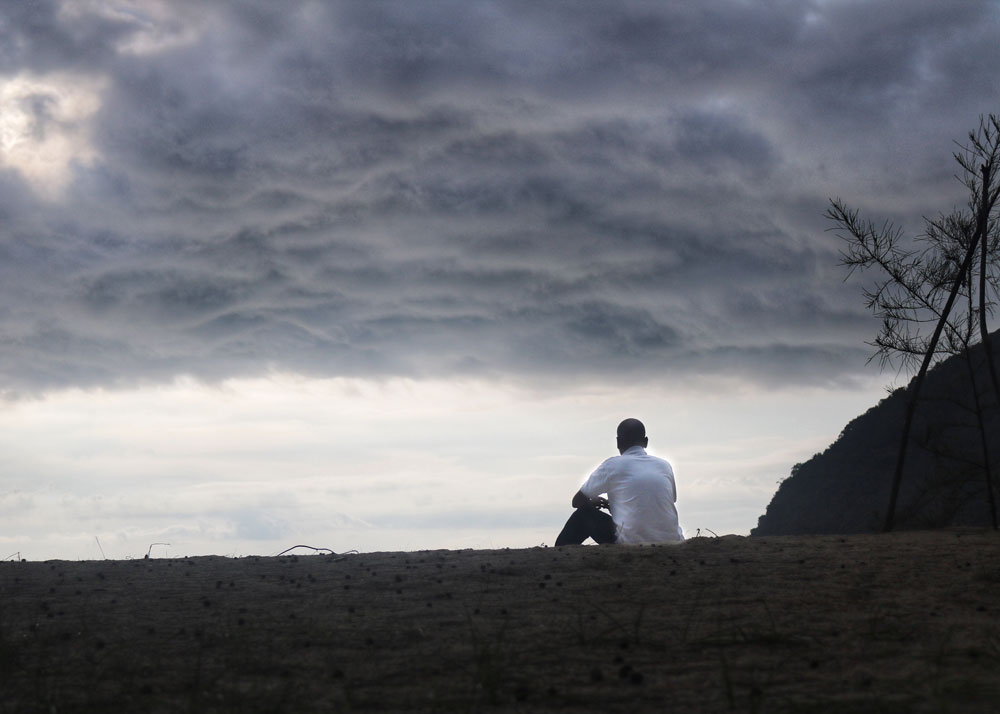
Get Alerts When Andrea Posts Reflections
On Loneliness: We Don't Have to Be Lonely
Loneliness is an existential risk.
There is a reason we don’t think about loneliness when things are good. When we’re generally happy, we have the energy and reserves to do the things we want and need to do. Work. Exercise. Prepare healthy food. Read. Create. When we are content, our inner voices are engaged with contented things. Busy and engaged are enough when life is good.
But life doesn’t stay good. Every life cycles in and out of good and bad, pain and joy. This is universal and immutable. The way to survive pain, to grow from it, to thrive beyond it, is to be surrounded by love. All different kinds of love: The love that you give and the love you receive, from family, friends, community, pets.

In the midst of great suffering everyone gets lost; for days, or weeks, or months. The presence of loved ones is both a buffer and a reminder that pain is just one part of a life. Really strong connections resist being pushed away, refuse to allow the loved-one to become lost to the hurt and isolation that always accompanies emotional trauma. In the midst of great pain, the presence of beloveds is a reminder that pain is temporary.
So it’s during times of loss and heartbreak that loneliness becomes unbearable … finding oneself with only oneself is the most isolating feeling in the world. There is no buffer, no distraction, no gentle (or not-so-gentle) pressure to reclaim one’s happiness. When we are hurting it feels impossible to build the connections that are ultimately the only cure to psychic pain.
The lonely person will ultimately emerge from pain, but they recover more slowly, and with an intense awareness of the loneliness they may not have recognized or been concerned about before.
Research suggests that people who are not lonely are more emotionally regulated. Whether that’s due to personality characteristics or learned behaviors, the not-lonely are more likely to approach life — and therefore pain and disappointment — from a place of problem-solving. They seek emotional support, treat themselves kindly inside their own thoughts, and express how they feel.

The same research suggests that people who are lonely approach the challenges of life by distracting themselves, trying to influence or change the people or situations that cause discomfort, and denial.
These two different behavior sets, those of the not-lonely and those of the lonely, are in play when life is good and when life is bad. The result is that the not-lonely behaviors lead to not-lonely people, which means that during the inevitable bad times they have support.
So loneliness is not a sentence.
Emotionally regulated behaviors can be learned with practice and commitment. Anyone can learn to replace distraction-via-video-games with journaling. Anyone can learn to replace thrill-seeking-via-extreme-sports with volunteering. Anyone can choose to accept and express their feelings about something they cannot change over trying to manipulate or influence a different outcome.
Anyone can choose to become an active participant in their emotional and external life rather than a passive observer.
Learning to behave in new ways isn’t easy, and unburdening oneself of loneliness is the work of months and years, not days. But there is so much hope in understanding that you are not doomed to loneliness. Even if it’s hard to imagine or visualize what a not-lonely life looks like, taking a leap of faith toward that life is filled with potential and anticipation.
Television shows like My 600 Pound Life help overweight people to envision a future of being fit and healthy while setting realistic expectations about the time and commitment required to achieve that life. The lifestyle and mental fitness challenge for the lonely is similar … consistent practice coupled with a sense of achievement that grows over time and leads to the life you want.
Bleakly accepting one’s loneliness denies the possibility of happiness, which is so unfortunate, because happiness is always possible.
Which brings us back to pain and suffering.
When we cannot tolerate the idea of pain or suffering, we cannot truly live. The avoidance of life’s downs requires the avoidance of anything that can lead to loss, which means avoidance of love, friendship, dreams, and hope. It leads to loneliness. And that’s not really living.
To fulfill one’s potential is to experience fully all that life has to offer; pain, joy, and everything in-between. To learn and grow from all of it.
All this is possible when we throw open the doors to our gated hearts, fling wide the windows on our chattering minds, let go of our fears of failure and disappointment, accept that all good outcomes require effort, and make room for the belief that we can change.

When we do this, loneliness cannot endure. Yes, bad times will continue to cycle in and out of our lives, but each subsequent loss will be met with an ever-growing buffer of self-awareness, support, and love. Each emergence from loss will reinforce our awareness that happiness and contentment will always return.
No lover, no child, no parent or sibling or pet can save us from loneliness. We can only save ourselves. And this is empowering, because it means we do not have to wait. We can begin, in this moment, to craft the life we want and deserve.
So what is holding you back? The time will go by either way. By this time next year, you could be less lonely and more fulfilled than you have ever been. And still that will be only the beginning.
